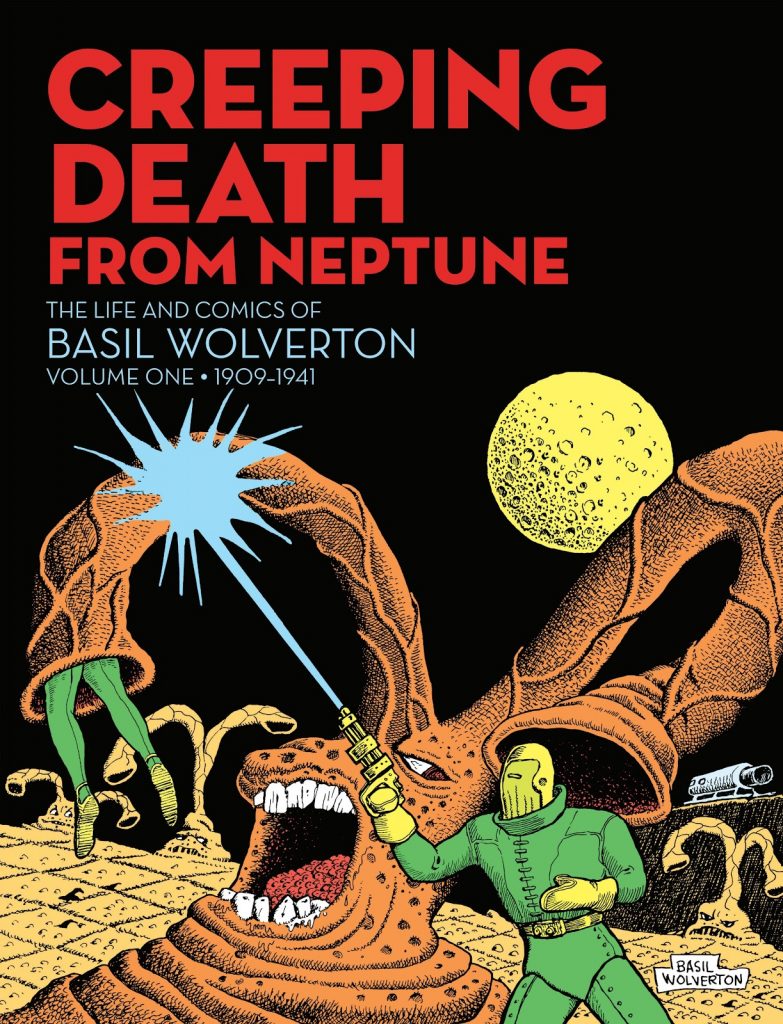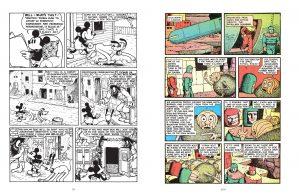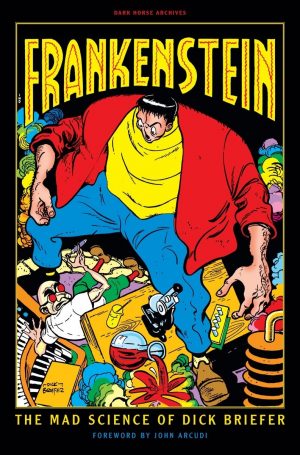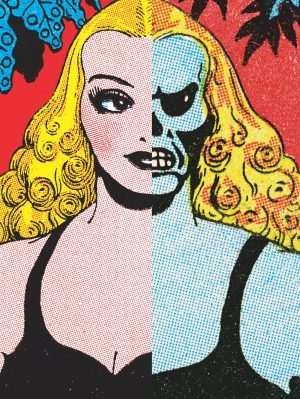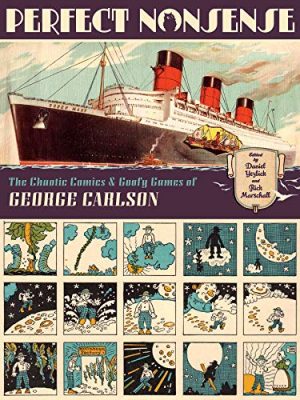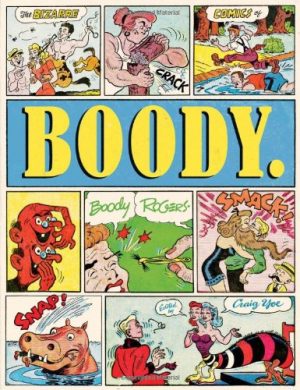Review by Frank Plowright
Basil Wolverton was there near the start of the American comics industry, and few creators can have received such a significant boost to their career as he did by winning Al Capp’s 1946 contest to design Lena the Hyena. At the time Capp’s Li’l Abner was near enough the USA’s leading comic strip, with millions hooked on its creative comedy melodrama, and Wolverton’s competition-winning entry followed months of speculation about the hideous looking Lena.
That, however, is a matter for follow-up Brain Bats of Venus. Here Greg Sadowski’s authoritative biography runs through Wolverton’s early years as an immensely talented child, through to his earliest days producing comic strips, when he had to supplement his meagre income by working in a cannery. As with other appreciations published by Fantagraphics, Sadowski mixes biographical information with sketches, memorabilia and comic strips for an appealing package, incredible access and research allowing for in-depth appreciation.
Sadowski contextualises Wolverton’s experiences via the periods he lived through. It’s fascinating to see Wolverton’s snapshots of Buster Keaton filming The General, one picture featuring the comedian whose impassive face was his trademark actually half-smiling, but the detail can also overwhelm. Wolverton was no overnight success, seemingly kept every rejection letter he was sent, and too many are reproduced or quoted and analysed to diminishing effect.
Most fans, though, while appreciating the background information, will really want to see Wolverton’s old comic strips, and it’s with those that Creeping Death From Neptune is slightly disappointing. It may be that strips from the late 1930s and early 1940s are just so rare there’s no tracking them down, but less than half the page count is given over to art, and not all of them feature strips. What is presented is a mixed bag, with the fewer madcap comedy examples standing up far better than Wolverton attempting straight SF adventure such as ‘Spacehawks’. The art is consistently imaginative in providing spectacle, but the reading is stodgy.
The earliest strips were intended for newspapers, and show that even natural talent needs to acquire technique, but Wolverton knocked himself out producing lively Mickey Mouse samples. “One was hired. I wasn’t among that one”, he drily noted in a 1971 interview. When Wolverton moves into comics, there’s plenty on his years of struggle, and dealings with pedantic editors. Considering how far Wolverton’s work is elevated above the overall quality of what was published in the earliest American comics the lack of recognition and respect is frankly astonishing.
Creeping Death From Neptune cuts off in 1940, with Wolverton’s years of greater acclaim held over for Brain Bats From Venus. This is researched in-depth, and it’s unlikely a better consideration of Wolverton’s early career will ever be produced, but that strength also limits the audience by making the continuation the more desirable publication.
